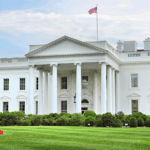Suppose I was organizing a birthday party for a mutual friend and asked you — and all your friends — to kick in $50 for food and decorations.
After several donations, I already have a sufficient budget to make this a pretty good party, and if I manage to spend all the money I’m expecting, it could be quite a blowout indeed.
When the night of the wingding rolls around, however, the guests realize pretty quickly I only spent a portion of what I had available on this cheesy affair, and they start asking some pointed questions and demanding to see receipts.
When it comes to government entities, safeguards exist to make sure the public knows the government is spending its money wisely and efficiently. In California, for example, the Public Records Act (CPRA) exists to make sure the average person could perform an independent check.
This right is so important that in 2004 California voters overwhelmingly approved Proposition 59, commonly called the Sunshine Amendment, and added a new article to the California State Constitution affirming this right.
The problem is that, over the years, dozens of exemptions have been added to the records act that have stripped away any real teeth it may have once had. The amount of exemptions isn’t exactly the issue, but one exemption stands above the rest.
A local school district, for example, can claim the documents in question have no bearing on the public interest or that releasing the documents would not serve as a way to inform the public of government activities.
To claim this exemption, localities have a burden of proof placed on them to prove why there is no bearing on the public interest. In true Orwellian fashion, they use the language of the exemption to prove the burden has been met.
In other words, the fact that they are claiming the exemption is proof that it has no bearing on public interest.
This is no exaggeration.
This issue was front and center this past week when a newspaper attempted to gain access to the names and email addresses of public employees across San Diego. The publication had no plans to make the lists public but wanted the information on hand for purposes of contacting government employees for news stories.
The San Diego City Council, however, claimed the names and email addresses of public employees — a database compiled and maintained on the dime of San Diego taxpayers — were not a matter of public record because of a flimsy threat that making that information public may open the county to phishing attacks.
The city made use of the catch-all exemption, arguing that releasing certain records is either not in the public interest or there is a significant government interest that is outweighed by not providing the requested records.
Once a public entity has decided that you don’t deserve to view their records, the only way to remedy the situation is the challenge them in Superior Court.
This is an extremely dangerous precedent that should not be allowed to stand.
If news agencies cannot have access to publicly funded employees contact information, it’s unlikely John and Jane Q. Citizen could ever obtain them, either.












